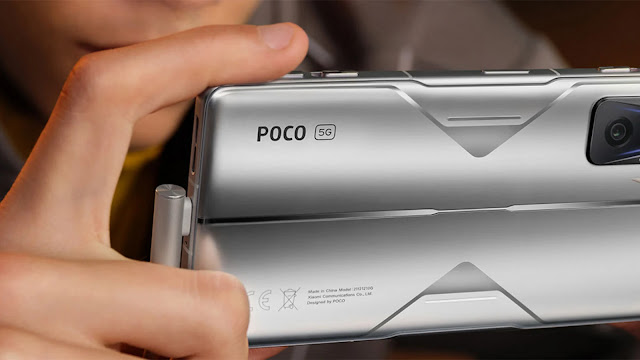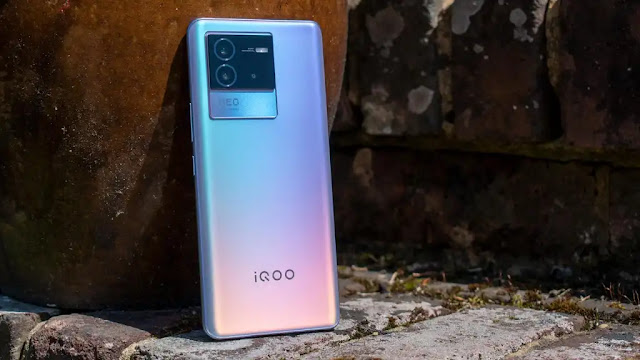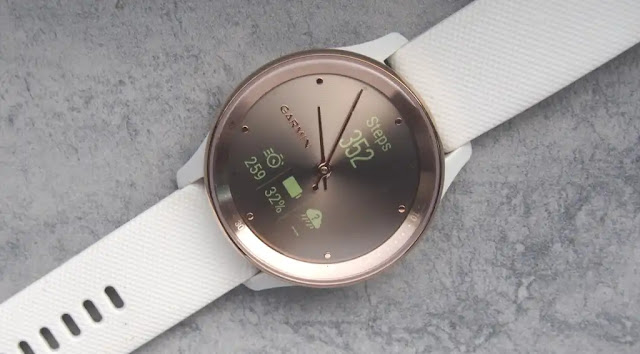The Poco F4 GT manages to appeal to gamers with top tier specs while toning down its looks for those who don’t want to have a garish smartphone.
Should I Buy The Poco F4 GT?
Pros
- Great trigger buttons
- Very fast 120W charging
- Excellent specs & performance
- Subtle design
Cons
- No headphone jack
- Clunky software
- Middling battery life
Our Verdict
Price When Reviewed
- Unavailable in the US
The Poco F4 GT is the Xiaomi sub-brand’s highest-spec phone to date and is geared towards smartphone gamers. Poco insists it’s not solely a gaming phone though, and with a relatively restrained design compared to other gaming phones, I am inclined to agree.
After a few weeks with the handset device, it’s clear this is a phone that can cope with several rounds of Call of Duty Mobile and the like with not so much as a performance hiccup, but it also does all the normal smartphone things without a hitch too.
Design & Build
- Pop-up shoulder trigger buttons
- Subtle gaming look
- Fingerprint scanner in power button
The F4 GT is a global version of the Redmi K50 Gaming that’s already been released and is on sale in China. The specs are identical, and the hardware design is incredibly similar, too.
Other gaming phones from Asus and Red Magic have very loud designs with RGB lighting, odd angles and sheet metal vibes. The F4 GT is a lot subtler, which I much prefer. Not all gamers want a phone that looks like the escape hatch on a space shuttle.
The glass back of the phone hints at gaming chops though with my black review unit sporting grey lines to break up the colour and an lightning bolt for the camera flash that's equal parts cut and cool. A silver version stands out a little more, while a yellow model does away with all subtlety.
Better is the fingerprint sensor in the power button for very fast biometric unlocking and not having to mess about with bad in-screen sensors.
The big gaming giveaway is pop-up trigger buttons on the right edge of the F4 GT. You turn them on by flicking adjacent physical switches so the buttons can be flush with the sides when not in use. It’s a clever bit of design but does mean those switches are always poking out a little.
You usually have to dive into the settings of individual games to assign shoulder touch controls to the buttons.
Poco missed a trick not including a 3.5mm headphone jack when so many mobile gamers would want the latency-free option of wired headphones. There is at least a USB-C headphone jack adapter in the box, though.
Also included in the box is a 120W fast charger but more on that later.
Screen & Speakers
- 6.67in AMOLED
- 120Hz refresh rate
- High 480Hz touch sampling rate
No gaming phone is complete without a high refresh rate display and the F4 GT does not disappoint with a 120Hz-capable, 6.67in 20:9 AMOLED panel. With a 480Hz touch sampling rate, it is very responsive, app and menu animations fly by smoothly and games at high refresh rate settings play well.
Poco has opted to keep the resolution at 1080p, and other gaming phones like the Asus ROG Phone 5 have a higher 144Hz option, but unless you’re incredibly picky the F4 GT’s screen is excellent. I’d have liked it if it could go brighter as in some light it looks a tad dull, but for most indoor gaming it looked bright and crisp enough.
The quad speakers are very good, located on the top edges of the top and bottom of the phone when you’re holding it in landscape orientation to game with. This meant sometimes when using the trigger buttons and gripping the phone I covered the speaker grilles with my index fingers, but the sound wasn’t too muffled thanks to a quite open design.
The speakers get plenty loud but do distort at the very highest volumes. On the plus side, their power means this is a good phone for clearly playing podcasts without headphones.
Specs & Performance
- Qualcomm Snapdragon 8 Gen 1 5G
- Up to 12GB RAM
- Up to 256GB non-expandable storage
The phone holds its own thanks to the Snapdragon 8 Gen 1, the highest-spec Qualcomm chipset available to Poco for the handset’s April 2022 launch. My 256GB review unit had 12GB RAM which seemed more than enough, but bear in mind you’ll only get 8GB with the 128GB model.
It adds up to a phone whose specs are not the highest available for any Android flagship, let alone a gaming phone. But in my usage, it performed admirably at everything, including games, so I have no complaints.
The LiquidCool 3.0 tech seemingly kept the phone from getting too warm under load. Poco designed the phone to keep the battery charging unit and processor as far from each other as possible and put vapour chambers over each to maximise cooling. The phone will get a little hot if you game for hours with the cable plugged in, though.
Comparing the Poco to other gaming phones in the benchmark table below, it more than holds its own against phones that cost a lot more. It also equals or betters the Samsung Galaxy S22+ in all tests.
A small but great thing is this phone’s excellent haptics. They are firm and pop well when typing and during gameplay and are among the best haptics I’ve seen on a phone at this price.
Battery Life & Charging
- 4700mAh not the biggest
- Insanely fast 120W charging
- Clever cable design
The Poco really shows off when it comes to the battery with 120W wired fast charging speeds. It’s absolutely insane. I charged the phone to 100% from empty in 20 minutes.
As with other phones with speedy charging tech, it changed how and when I charged my phone. Instead of running it down all day and leaving it plugged in all night, I now top up the phone for a matter of minutes when it needs it. If it’s below 40% or so when I hit the hay, I can plug it in while I’m brushing my teeth and it’ll be close to 70% afterwards.
Poco knows you will want to charge while gaming, which is why the USB-C cable is cleverly angled in an L shape so it plugs in and goes off at 90 degrees, meaning you can hold the phone in landscape to game and not have a cable getting in the way of your hand.
Despite a glass back the phone does not support wireless charging, but you can’t exactly wireless charge a phone while gaming anyway, and the 120W wired option is so fast you won’t miss the feature.
- Solid 64Mp main shooter
- Other three lenses nothing special
- 4k at 60fps video recording
Poco’s head of marketing told me cameras still aren’t a priority for the brand, but the triple-lens setup here is above average. The 64Mp f/1.9 Sony IMX686 main sensor does most of the heavy lifting here and in good conditions shots are sharp and clear.
There’s no telephoto lens, so the 2x zoom in the camera app is simply digital zoom cropping this main sensor. Digital portrait mode often produces pleasingly moody, contrasty shots and is fun to play with.
The software tends to oversaturate colours and there’s an HDR toggle, but the dynamic range of images is nothing to write home about. The 8Mp ultrawide is less capable than the main camera but at least you have the option to capture more in the frame when needed. The 2Mp macro lets you get close up to stuff, but it’s not a patch on the iPhone 13 Pro’s macro might.
All lenses struggle in low light, even in night mode, with textures and colours often lost to muddy dark tones.
Poco has a nicely designed camera app with intuitive toggles and options, and the video recording is surprisingly versatile. There’s a fun movie frame mode to give your shooting a black letterbox look, and the main lens can shoot in 4K at 60fps.
- MIUI 13 based on Android 12
- Game Turbo feature
- Too much iOS copying
Poco has added some granular gaming control in the form of a standalone app called Game Turbo. It allows you to set specific hardware and software settings on a per game basis. I didn’t feel the need to use it much but if you want to crank up the RAM allocation and other settings then it’s there.
Taste in software is quite personal and I could not get on with Poco’s MIUI 13 skin. It’s great the phone launches with Android 12, but Xiaomi’s software design changes an awful lot, and in some instances purposefully makes Android more like iOS.
This is most noticeable in how notifications behave, stacking one on top of the other in big white blocks with rounded edges just like on an iPhone. Several notifications from the same app aren’t grouped together in stacks either, so the pings pile up into a big ungainly mess.
It’s a far cry from the organised, easy to manage notifications of Android 12 on phones from other brands, in particular Samsung.
You can switch off access to this via the top right, but it’s another instance where sticking with Android’s regular behaviour would make much more sense. I frequently tried to swipe down for notifications and got the quick settings instead.
The performance of the phone means the software works how Poco intended. But the amount of cruft over the top makes the phone feel a little sluggish, even though it’s far from it. Animations are a bit laboured.
For the hardcore gamers, the software has a performance mode that turns everything up to 11 in Spinal Tap style. I never felt I had to use the mode as the games I played ran fine on normal settings but it’s good to know it’s there if you need it.
Poco hasn’t confirmed how many Android platform updates the F4 GT will get or how many years of security updates. The company told me it’s aiming for three years and four years respectively, but that is not certain yet.
Price & Availability
The Poco F4 GT retails at €599 in Europe for the 8GB/128GB model and €699 for the 12GB/256GB model. You can get it from Amazon Germany. currently with an early bird launch price of €100 off either model.
€499 is currently about £500, which puts it near the £399 OnePlus Nord 2, and the Poco even gives you the Snapdragon 8 Gen 1 for this price over a £1,099 gaming phone like the Asus ROG Phone 5S Pro which has the older 888+. You’ll save a lot of money opting for the Poco and probably won’t notice a performance difference.
At full price, it's just over £500, which puts it at £100 less than the Google Pixel 6 and the same as the £499 Realme GT 2.
The UK pricing will be announced when the phone launches at the end of May. It’d be great if Poco can hit about £500 for the lower end model, which would make it one of the cheapest 8 Gen 1 phones around.
Verdict
Poco has succeeded in its goal of making a gaming phone that can masquerade as a ‘normal’ smartphone when you aren’t gaming - something that's rare in the phone market but quite possibly a sweet spot many users may have been waiting for.
The design hints at a gamer aesthetic but is subtle enough that no one will really notice, but adds fun and useful touches like trigger buttons and cooling tech.
The screen and speakers are excellent and while the battery life is unremarkable, the 120W charger included in the box is the fastest you can currently find on any globally available smartphone and means you can fully charge the phone in just 20 minutes.
Add to that the competitive pricing and the Poco F4 GT is one of the rare gaming phones I can recommend to casual gamers as well as those who are glued daily to online multiplayer madness.
Specs
- Android 12 with MIUI 13
- 6.67in AMOLED, 1080 x 2400, 120Hz, 20:9 ratio
- Qualcomm Snapdragon 8 Gen 1 5G processor
- 8/12GB LPDDR5 RAM
- 128/256GB of UFS 3.1 storage (non-expandable)
- 64Mp f/1.9 Main
- 8Mp f/2.2 Ultrawide
- 2Mp f/2.4 Macro
- 20Mp f/2.4 Selfie
- Dual-SIM
- Quad speaker
- NFC
- GPS
- Bluetooth 5.2
- Wi-Fi 6E
- Fingerprint sensor in Power button
- 4700mAh battery
- 120W fast charging
- USB-C charging port
- 162.5 x 76.7 x 8.5mm
- 210g









.jpg)
.jpg)
.jpg)
.jpg)
.jpg)
.jpg)
.jpg)
.jpg)
.jpg)
.jpg)















0 comments:
Post a Comment